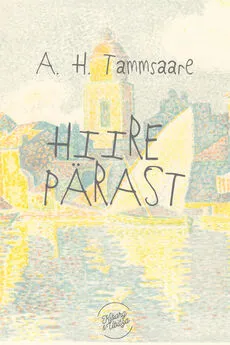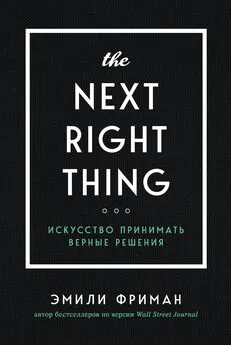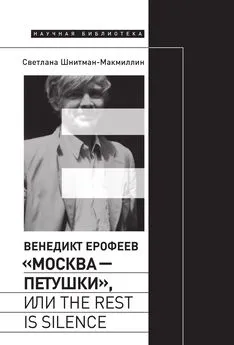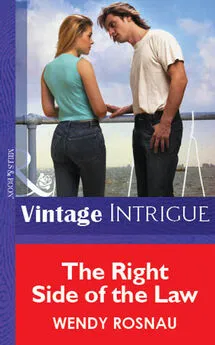W. Ainsworth - Rookwood
- Название:Rookwood
- Автор:
- Жанр:
- Издательство:неизвестно
- Год:неизвестен
- ISBN:нет данных
- Рейтинг:
- Избранное:Добавить в избранное
-
Отзывы:
-
Ваша оценка:
W. Ainsworth - Rookwood краткое содержание
Rookwood - читать онлайн бесплатно полную версию (весь текст целиком)
Интервал:
Закладка:
CHAPTER XIII
THE BROTHERS
WITH that quickness of perception, which at once supplies information on such an emergency, Luke instantly conjectured who was before him. Startled as he was, he yet retained his composure, abiding the result with his arms folded upon his breast.
"Seize him," cried Lady Rookwood, as soon as she could command her speech.
"He rushes on his death if he stirs," exclaimed Luke, pointing his pistol.
"Bethink you where you are, villain," cried Ranulph; "you are entrapped in your own toils. Submit yourself to our mercy—resistance is vain, and I will not secure your safety, while it will aggravate your offence. Surrender yourself—"
"Never!" answered Luke. "Know you whom you ask to yield?"
"How should I?" answered Ranulph.
"By that instinct which tells me who you are. Ask Lady Rookwood—she can inform you, if she will."
"Parley not with him—seize him," cried Lady Rookwood. "He is a robber, a murderer, who has assailed my life."
"Beware," said Luke to Ranulph, who was preparing to obey his mother's commands; "I am no robber—no murderer. Do not make me a fratricide."
"Fratricide!" echoed Ranulph.
"Heed him not," ejaculated Lady Rookwood. "It is false—he dares not harm thee for his soul. I will call assistance."
"Hold, mother!" exclaimed Ranulph, detaining Lady Rookwood; "this man may be what he represents himself. Before we proceed to extremities I would question him. I would not have mentioned it in your hearing could it have been avoided, but my father had another son."
Lady Rookwood frowned. She would have checked him, but Luke rejoined:
"You have spoken the truth; he had a son—I am he. I—"
"Be silent, I command you," said Lady Rookwood.
"Death!" cried Luke, in a loud voice. "Why should I be silent at your bidding—at yours —who regard no laws, human or divine; who pursue your own fell purposes, without fear of God or man? Waste not your frowns on me—I heed them not. Do you think I am like a tame hound, to be cowed to silence? I will speak. Ranulph Rookwood, the name you bear is mine, and by a right as good as is your own. From his loins, who lies a corpse before us, I sprang. No brand of shame is on my birth. I am your father's son—his first-born—your elder brother. Hear me!" cried he, rushing to the bier. "By this body, I swear that I have avouched the truth—and though to me the dead Sir Piers Rookwood hath never been what a father should be to a son—though I have never known his smile, felt his caresses, or received his blessing, yet now be all forgiven, forgotten." And he cast himself with frantic violence upon the coffin.
It is difficult to describe the feelings with which Ranulph heard Luke's avowal. Amazement and dread predominated. Unable to stir, he stood gazing on in silence. Not so, Lady Rookwood. The moment for action was arrived. Addressing her son in a low tone, she said, "Your prey is within your power. Secure him."
"Wherefore?" rejoined Ranulph: "if he be my brother, shall I raise my hand against him?"
"Wherefore not?" returned Lady Rookwood.
"'Twere an accursed deed," replied Ranulph. "The mystery is resolved. 'Twas for this that I was summoned home."
"Ha! what say you? summoned! by whom?"
"My father!"
"Your father?" echoed Lady Rookwood, in great surprise.
"Ay, my dead father! He has appeared to me since his decease."
"Ranulph, you rave—you are distracted with grief—with astonishment."
"No, mother; but I will not struggle against my destiny."
"Pshaw! your destiny is Rookwood, its manors, its land, its rent-roll, and its title; nor shall you yield it to a baseborn churl like this. Let him prove his rights. Let the law adjudge them to him, and we will yield—but not till then. I tell thee he has not the right, nor can he maintain it. He is a deluded dreamer, who, having heard some idle tale of his birth, believes it, because it chimes with his wishes. I treated him with the scorn he deserved. I would have driven him from my presence, but he was armed, as you see, and forced me hither, perhaps to murder me; a deed he might have accomplished, had it not been for your intervention. His life is already forfeit, for an attempt of the same sort last night. Why else came he hither? for what else did he drag me to this spot? Let him answer that!"
"I will answer it," replied Luke, raising himself from the bier. His face was of an ashy paleness, and ghastly as the corpse over which he leaned. "I had a deed to do, which I wished you to witness. It was a wild conception. But the means by which I have acquired the information of my rights were wild. Ranulph, we are both the slaves of fate. You have received your summons hither—I have had mine. Your father's ghost called you; my mother's spectral hand beckoned me. Both are arrived. One thing more remains, and my mission is completed." Saying which, he drew forth the skeleton hand; and having first taken the wedding-ring from the finger, he placed the withered limb upon the left breast of his father's body. "Rest there," he cried, "for ever."
"Will you suffer that?" said Lady Rookwood, tauntingly, to her son.
"No," replied Ranulph; "such profanation of the dead shall not be endured, were he ten times my brother. Stand aside," added he, advancing towards the bier, and motioning Luke away. "Withdraw your hand from my father's body, and remove what you have placed upon it."
"I will neither remove it, nor suffer it to be removed," returned Luke. "'Twas for that purpose I came hither.'Twas to that hand he was united in life, in death he shall not be divided from it."
"Such irreverence shall not be," exclaimed Ranulph, seizing Luke with one hand, and snatching at the cereclothes with the other. "Remove it, or by Heaven—"
"Leave go your hold," said Luke, in a voice of thunder; "you strive in vain."
Ranulph ineffectually attempted to push him backwards; and shaking away the grasp that was fixed upon his collar, seized his brother's wrist, so as to prevent the accomplishment of his purpose. In this unnatural and indecorous strife, the corpse of their father was reft of its covering, and the hand discovered lying upon the pallid breast.
And as if the wanton impiety of their conduct called forth an immediate rebuke, even from the dead, a frown seemed to pass over Sir Piers's features, as their angry glances fell in that direction. This startling effect was occasioned by the approach of Lady Rookwood, whose shadow, falling over the brow and visage of the deceased, produced the appearance we have described. Simultaneously quitting each other, with a deep sense of shame, mingled with remorse, both remained, their eyes fixed upon the dead, whose repose they had violated.
Folding the graveclothes decently over the body, Luke prepared to depart.
"Hold!" cried Lady Rookwood; "you go not hence."
"My brother Ranulph will not oppose my departure," returned Luke; "who else shall prevent it?"
"That will I," cried a sharp voice behind him; and, ere he could turn to ascertain from whom the exclamation proceeded, Luke felt himself grappled by two nervous assailants, who, snatching the pistol from his hold, fast pinioned his arms. This was scarcely the work of a moment, and he was a prisoner before he could offer any resistance. A strong smile of exultation evinced Lady Rookwood's satisfaction.
"Bravo, my lads, bravo!" cried Coates, stepping forward, for he it was under whose skilful superintendence the seizure had been effected: "famously managed; my father, the thief-taker's runners couldn't have done it better—hand me that pistol—loaded, I see—slugs, no doubt—oh, he's a precious rascal—search him—turn his pockets inside out while I speak to her ladyship." Saying which, the brisk attorney, enchanted with the feat he had performed, approached Lady Rookwood with a profound bow, and an amazing smirk of self-satisfaction. "Just in time to prevent mischief," said he; "hope your ladyship does not suffer any inconvenience from the alarm—beg pardon, annoyance I meant to say—which this horrible outrage must have occasioned; excessively disagreeable this sort of thing to a lady any time, but at a period like this more than usually provoking. However, we have the villain safe enough. Very lucky I happened to be in the way. Perhaps your ladyship would like to know how I discovered—"
"Not now," replied Lady Rookwood, checking the volubility of the man of law. "I thank you, Mr. Coates, for the service you have rendered me; you will now add materially to the obligation by removing the prisoner with all convenient despatch."
"Certainly, if your ladyship wishes it. Shall I detain him a close prisoner in the hall for the night, or remove him at once to the lock-up house in the village?"
"Where you please, so you do it quickly," replied Lady Rookwood, noticing, with great uneasiness, the agitated manner of her son, and apprehensive lest, in the presence of so many witnesses, he might say or do something prejudicial to their interests. Nor were her fears groundless. As Coates was about to return to the prisoner, he was arrested by the voice of Ranulph, commanding him to stay.
"Mr. Coates," said he, "however appearances may be against this man, he is no robber—you must, therefore, release him."
"Eh day, what's that? release him, Sir Ranulph?"
"Yes, sir; I tell you he came here neither with the intent to rob nor to offer violence."
"That is false, Ranulph," replied Lady Rookwood. "I was dragged hither by him, at the peril of my life. He is Mr. Coates's prisoner on another charge."
"Unquestionably, your ladyship is perfectly right; I have a warrant against him for assaulting Hugh Badger, the keeper, and for other misdemeanours."
"I will myself be responsible for his appearance to that charge," replied Ranulph. "Now, sir, at once release him."
"At your peril!" exclaimed Lady Rookwood.
"Well, really," muttered the astonished attorney, "this is the most perplexing proceeding I ever witnessed."
"Ranulph," said Lady Rookwood, sternly, to her son, "beware how you thwart me!"
"Yes, Sir Ranulph, let me venture to advise you, as a friend, not to thwart her ladyship," whispered the attorney; "indeed, she is in the right." But, seeing his advice unheeded, Coates withdrew to a little distance.
"I will not see injustice done to my father's son," replied Ranulph, in a low tone. "Why would you detain him?"
"Why?" returned she, "our safety demands it—our honour."
"Our honour demands his instant liberation; each moment he remains in those bonds sullies its purity. I will free him myself from his fetters."
"And brave my curse, foolish boy? You incurred your miserable father's anathema for a lighter cause than this. Our honour cries aloud for his destruction. Have I not been injured in the nicest point a woman can be injured? Shall I lend my name to mockery and scorn, by base acknowledgment of such deceit, or will you? Where would be my honour, then, stripped of my fair estates—my son—myself—beggars—dependent on the bounty of an upstart? Does honour ask you to bear this? It is a phantom sense of honour, unsubstantial as your father's shade, of which you just now spoke, that would prompt you to do otherwise."
"Do not evoke his awful spirit, mother," cried Ranulph, with a shudder; "do not arouse his wrath."
"Do not arouse my wrath," returned Lady Rookwood. "I am the more to be feared. Think of Eleanor Mowbray; the bar between your nuptials is removed. Would you raise up a greater impediment?"
"Enough, mother, more than enough. You have decided, though not convinced me. Detain him within the house, if you will, until the morrow; in the meantime, I will consider over my line of conduct."
Читать дальшеИнтервал:
Закладка:




![Rakot - Апостол Новой Веры. Том 1 [СИ]](/books/1061842/rakot-apostol-novoj-very-tom-1-si.webp)
![Rakot - Укуренный мир. Том 3 [СИ]](/books/1073038/rakot-ukurennyj-mir-tom-3-si.webp)




